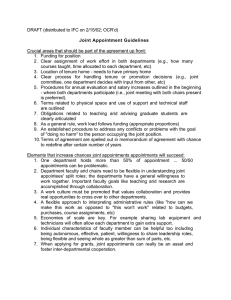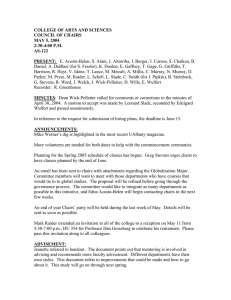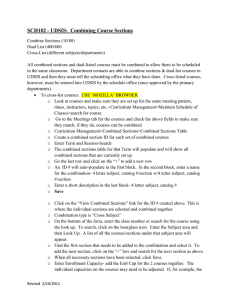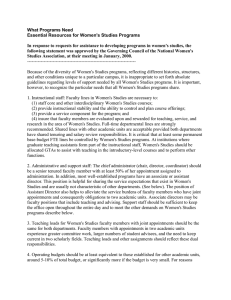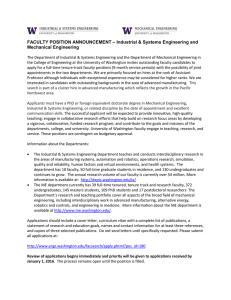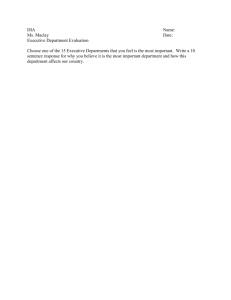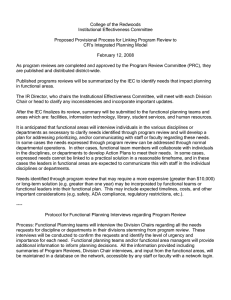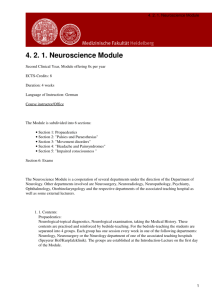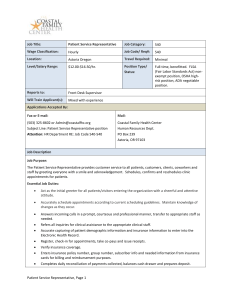First Meeting Discussion
advertisement
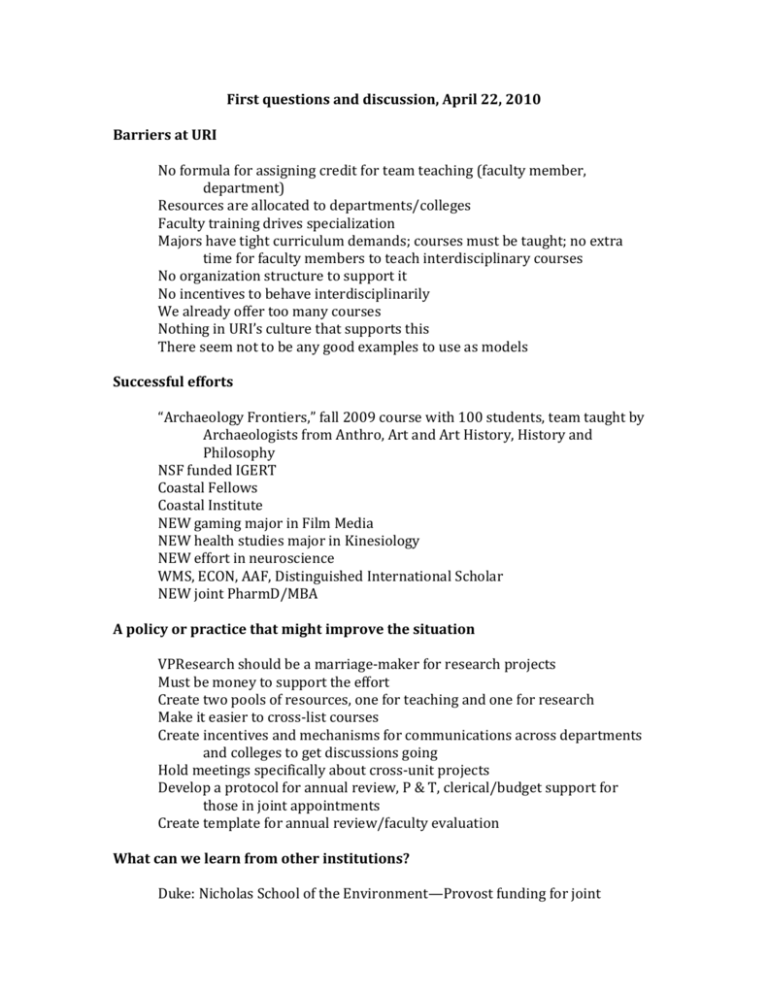
First questions and discussion, April 22, 2010 Barriers at URI No formula for assigning credit for team teaching (faculty member, department) Resources are allocated to departments/colleges Faculty training drives specialization Majors have tight curriculum demands; courses must be taught; no extra time for faculty members to teach interdisciplinary courses No organization structure to support it No incentives to behave interdisciplinarily We already offer too many courses Nothing in URI’s culture that supports this There seem not to be any good examples to use as models Successful efforts “Archaeology Frontiers,” fall 2009 course with 100 students, team taught by Archaeologists from Anthro, Art and Art History, History and Philosophy NSF funded IGERT Coastal Fellows Coastal Institute NEW gaming major in Film Media NEW health studies major in Kinesiology NEW effort in neuroscience WMS, ECON, AAF, Distinguished International Scholar NEW joint PharmD/MBA A policy or practice that might improve the situation VPResearch should be a marriage-maker for research projects Must be money to support the effort Create two pools of resources, one for teaching and one for research Make it easier to cross-list courses Create incentives and mechanisms for communications across departments and colleges to get discussions going Hold meetings specifically about cross-unit projects Develop a protocol for annual review, P & T, clerical/budget support for those in joint appointments Create template for annual review/faculty evaluation What can we learn from other institutions? Duke: Nicholas School of the Environment—Provost funding for joint appointments; Maryland, between engineering and business, business and languages and business and computer sciences Georgetown, neuroscience Louisiana Tech, chairs come from outside departments they oversee SUNY Cortland: involve chairs, decide if courses temporary or permanent acknowledge that just because there are two in classroom, interdisciplinary doesn’t just happen William and Mary lists interdisciplinarity as one of its top grand challenges American U in Paris, Freshman Seminars equal to 2 or 2.5 courses
